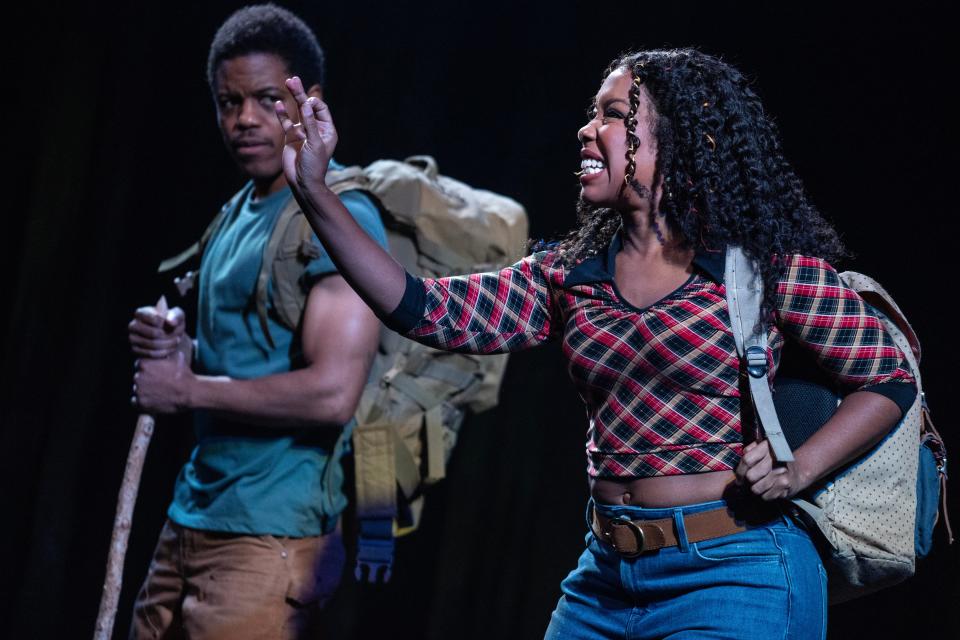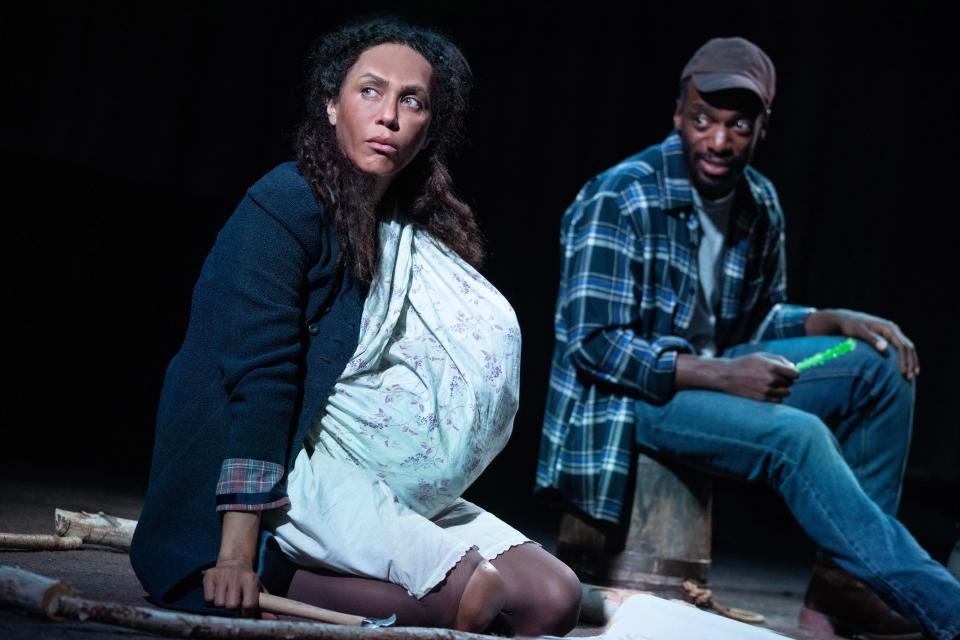Off-Broadway's epic 'Refuge Plays' tells an expansive story — but does it succeed?
- Oops!Something went wrong.Please try again later.
Thirty minutes or so into "The Refuge Plays," the elderly man sitting behind me loudly whispered, "This is the worst thing I've ever seen."
A bit harsh, considering this new work by Nathan Alan Davis had about three hours to go. My guess is, the man left after the first intermission.
"The Refuge Plays" is long, an epic and expansive story of a Black family over 70 years. A note in the Playbill says "it's about the cycle of life: birth, death, and those who come back to visit from beyond."
The note does not mention the off-Broadway show is disjointed. Some in the audience were clearly confused, and the second part dragged on. Director Patricia McGregor has the difficult task of making this ambitious and seemingly incomplete show come together — and she doesn't always succeed.
But there is strong writing, some good moments and solid performances in this co-production by Roundabout Theatre Company and New York Theatre Workshop.

"Protect the Beautiful Place" is the title of Part 1, which takes place in present day. Inside the small, makeshift, two-room house, nestled deep in a southern Illinois forest, we meet Gail (Jessica Frances Dukes), the de facto head of the household; Early (Nicole Ari Parker), the original matriarch of the family; the ghost of Walking Man, Gail's husband and Early's son; Joy (Ngozi Anyanwu), Gail and Walking man's daughter; Ha-Ha (JJ Wynder), Joy's son; and Symphony (Mallori Taylor Johnson), a young woman from a nearby town.
While Walking Man is a ghost, people can see him, and talk to him. He tries to convince the book-loving teenager Ha-Ha, for instance, that he needs to have sex. But don't get too attached because we never see Ha-Ha and Symphony (or Joy) again.
Why? Because "The Refuge Plays" goes backward in time. So the second part takes place in the 1970s, and the third part in the 1950s. Early appears in all three parts, and Parker is excellent portraying this strong, intimidating and at times fearsome character.
The highlight is Part 3, "Early's House," with Parker and Daniel J. Watts as Crazy Eddie. Introduced in Part 2, this former high school classmate goes out in the forest looking for Early. He brings all kinds of food and water for her. But Early is cautious. She may not be as mighty as Thor, but she never lets go of a hammer — ever-so protective of the baby that she keeps swaddled on her chest.

Watts makes it easy to see that Eddie is cool and caring. He wants to help Early. Will she trust him as much as we do? Seeing this relationship build is a fine way to end the night.
Part 2 is titled "Walking Man," and we learn all about where the character has been, and where he may go. Hill's performance is fine, but Lance Coadie Williams as Uncle Dax is more memorable and provides comic relief.
The ghosts of Early's parents, Clydette (Lizan Mitchell) and Reginald (Jerome Preston Bates) also make an appearance, and convince Dax to place a water pump in the ground near a tree next to the family house. There's no water line, but that doesn't seem to bother the ghosts.
Water is mentioned throughout the play, symbolizing life, perhaps wisdom, a continuation from one generation to the next.
Set designer Arnulfo Maldonado, costume designer Emilio Sosa, lighting designer Stacey Derosier, and original music and sound by Marc Anthony Thompson help transport us into Davis' world of spirits and survival.
"The Refuge Plays" may not always work, or make sense, but perhaps it's a beginning. There are more stories to tell about Ha-Ha (does he become an author?) and Dax (does he meet James Baldwin in Paris?) and Joy (a character that deserves more attention).
Maybe that's what Davis wants us to do: fill in the blanks, think about the future, think about our past and our families.
And how life goes on.
Go: "The Refuge Plays," through Nov. 12, Laura Pels Theatre in the Harold and Miriam Steinberg Center for Theatre, 111 W. 46th St., $49 to $99; 212-719-1300, roundabouttheatre.org.
Bill Canacci can be reached at bcanacci@gannettnj.com.
This article originally appeared on Asbury Park Press: The Refuge Plays review Off-Broadway: Does epic story succeed?

